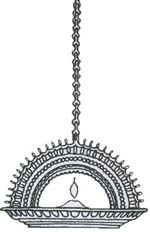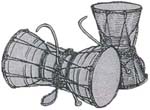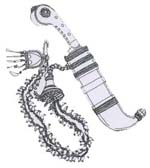Work in progress - Newly added : Will be listed shortly



Ain-manés are the ancestral homes of the native communities in Koḍagu, and have an important role in their socio-cultural traditions. Each ainmané belongs to an okka (patrilineal clan) that is identified by its mané péda (name of the okka).
The traditional ainmanés of Koḍagu have a unique architectural style. Those that are still standing today generally date from about 150 to 250 years ago, and have evolved from the simple balyamanés of earlier times. Currently there are about 1720 okkas in Koḍagu (including about 1040 Koḍava, 320 Gouḍa and 360 okkas of other communities). Nearly 60% of them no longer have traditional ainmanés.
The objective of this web-site is to document the current status of the traditional ainmanés of all the communities in Koḍagu and thereby contribute to the archival records of the heritage and oralhistory of the people of Koḍagu. It provides fascinating insights into the social and religious customs and conventions of the communities in Kodagu and the way of life of the people. It will also serve to raise awareness of the value of these buildings and the need to preserve them, besides providing information for those studying the socio-cultural-architectural heritage of Koḍagu.
This web-site contains information on all the traditional ainmanés in Koḍagu that were functional when we visited them (April 2003 to May 2008). It includes photographs and information on each ainmané and its okka. The information was collected from members of the okka present in the ainmané when we visited it and from those contacted later by telephone. Where available, information was added from published articles and books.
Every ainmané in the web-site is identified by its mané péda, the village where it is located and the community to which it belongs. Entering the mané péda of the okka in the ‘Search window’ allows the user to retrieve the photos and information on the ainmané and the okka.
A table listing the okkas visited in alphabetical order of their mané pédas along with the names of the villages where their ainmanés are located and the communities that the okkas belong to is provided. Similar tables in alphabetical order of village names and by community are also provided.
Also included are sketch maps of Koḍagu (in 9 sections) that show the location of each ainmane. The ainmanés are identified by numbers on the maps, and the index gives their mané pédas.
A glossary gives the meanings of words in Koḍava language that are in the web-site. Accent marks in the glossary and the key to the transliteration provides a guide to the reader on the correct pronunciation of these words.
The stories collected from the informants are oral narratives. Others in the okka may have other versions of these stories. We welcome such versions and any other stories, additions or corrections to the information, which, if credible, will be incorporated in the website.
We wish to gratefully acknowledge the generosity of all the informants who willingly gave us their time and thank them for their valuable help in compiling the information for this web-site. We are grateful to The Coorg Foundation for their encouragement and help in this venture. We also wish to thank Kalyatanda Nanjappa of Chinshai Technologies, Gonikoppa, for giving us novel ideas for this web-site and for setting it up.
Our book “Ainmanes of Koḍagu” has been published by Nyogi Books of New Delhi (July 2014). It gives an overview of the ancestral homes of Koḍagu and of their socio-cultural significance.
Boverianda Nanjamma & Chinnappa
'C051' - Classic Royale Garden
Hennur Main Road,
Bangalore : 560043
E-Mail : nach@vsnl.com
